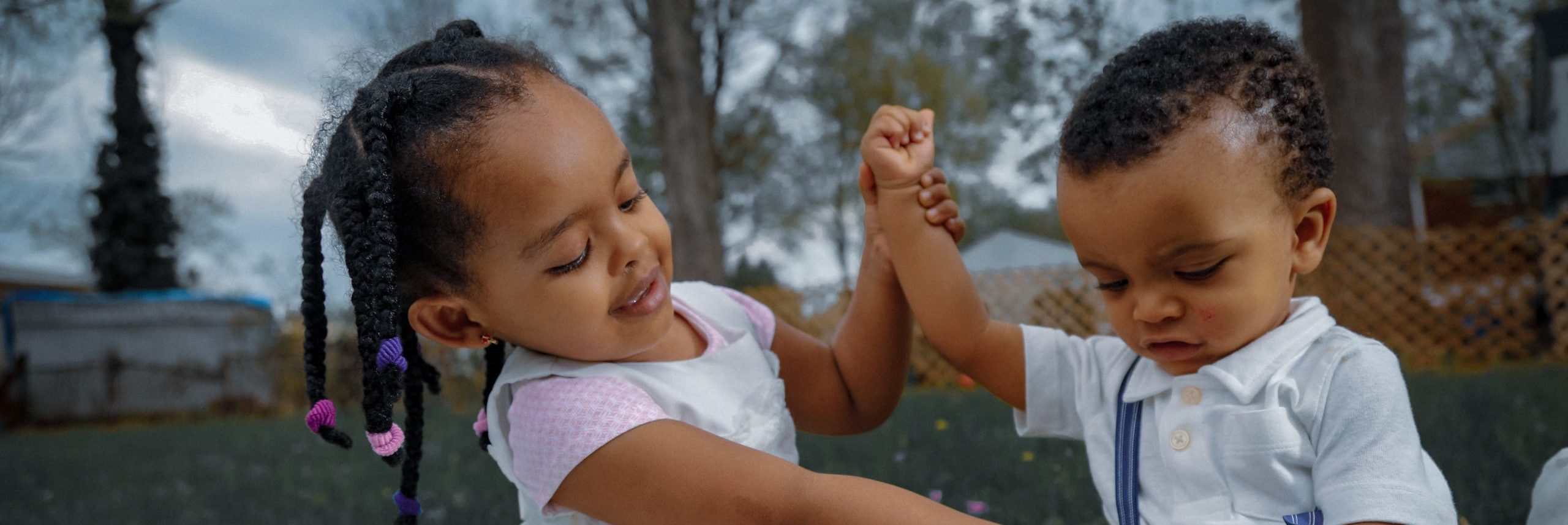Being stuck inside with your kids for an indefinite amount of time due to a global pandemic is stressful enough. It’s even worse when those kids can’t stop bickering. For many parents, this is the new reality. Siblings, cooped up and frustrated, are fighting more than they normally might, and nobody can escape.
“Everyone is around each other much more than before,” says licensed clinical psychologist and parenting evaluator Melanie English, Ph.D. “Kids don’t have their usual breaks from their siblings during school, sports, or time with friends. They’re also likely worrying about when they’ll have that back. With all this uncertainty, they may be more moody, sad, easily frustrated, or more emotionally aroused.”
So, what’s a parent at the end of the proverbial rope to do? We spoke to some experts for advice.
Give them your attention
Sibling rivalry may rear its head as kids compete for trivial things, like toys or screentime. But they might also be acting out for something much more valuable: your attention. Dr. English suggests trying to give them some of your time without distraction to see if that helps diffuse the situation. You might start by asking them directly what, exactly, they need, she says. If they aren’t sure, help them identify their needs by giving them some prompts: Are they struggling to focus on school work? Are they worried about COVID-19? Are they missing their friends? Are they bored?
Try to avoid lecturing, and just listen.
“As much as you want to lecture on problem behaviors and life lessons about the challenges of quarantine on a family, try not to label problems and instead find solutions,” Dr. English says. “Saying something like ‘we’re all stressed out!’ or ‘this is hard on everyone!’ only accentuates and reinforces already negative or fragile moods.”
Prioritize schedules and space
Dr. English suggests a proactive — rather than reactive — approach to sibling altercations. Defined schedules with time for meals, sleep, homeschooling, screen time, private time, and free time may help create peace by establishing a structure of time spent apart and time spent together, she says.
“You may need to designate areas in your house for each child to use during the day,” she adds. If your space is small or siblings share a bedroom, you might need to get a bit creative. Consider moving furniture around to create new spaces. You can always move it back later — and it’s not as if you have visitors to worry about right now.
“These new spaces could be for homeschooling periods but also for private time, which is something your children may not fully understand but should have each day,” Dr. English says. “You may need to acknowledge and educate what private time is (no siblings or parents) and explain why everyone needs this — and that’s okay.”
Clinical social worker and therapist Gideon Javna, LCSW, recommends including cooperative activities (between siblings and/or parents) in your schedule, such as games in which the players win or lose together. This builds social skills and sets the stage for good behavior by encouraging siblings to work as a team.
When personal space is scarce, it’s important that kids have a calm place where they can retreat if they are frustrated or upset, or just need some breathing room. Licensed professional counselor Mark Mayfield has a “calm corner” in his own house with feelings charts, a white board, stuffed animals, LEGOs, and coloring materials.
Be judicious with punishments — and rewards
“Punish your children the same, no matter who caused the fight,” says Lea Lis, MD, a board certified psychiatrist and clinical professor at NYU. This means if one sibling hits the other, they both go to their room, get their toys taken away, or whatever else you think is appropriate. “This creates peer pressure for the siblings to get along: ‘Stop or we both get into trouble!'” Dr. Lis explains.
You could also set up a rewards-based system. For every day your kids go without a single fight, they get a reward. The amount is up to you, and it doesn’t have to be more than a couple of dollars. “At the end of the week, let your kids pick a toy or game to buy with the money — something they all like and will share. This will foster even more good will,” Dr. Lis says.
She’s also behind some serious bending of the usual house rules during these strange times. “It’s okay to accept that your kids may play online games more, be in their room more,” Dr. Lis says. “They may not complete all their homework or do their share of their chores. Tolerate this and remember that your kids are missing out on so much.
Have compassion
Most importantly, remember your kids might be struggling in lockdown more than you are. “As adults we are able to understand what is going on and why. We have the vocabulary and hopefully the emotional intelligence to communicate our emotions and our needs,” Mayfield says. “It’s different for children — they feel the same types of emotions but they don’t have the life experience and/or vocabulary to make sense of it. Often, they express their struggle by acting out.”
Sometimes, the best approach is the simplest one. “Sit with them and comfort them, and give them a shoulder to cry on,” Dr. Lis says.
If you have the energy to search for a silver lining, sibling arguments might actually be a reminder that some things are still normal. “I would be more concerned about the child, especially a teenager, who seems more withdrawn, quiet, or disconnected from family and friends than usual than of arguing siblings — which is common during times of pandemic or not,” Dr. English says.
You can read the original article on The Week.
Claire Gillespie, Siblings fighting more during lockdown? Here’s what parents can do, May 4, 2020, https://theweek.com/articles/909374/siblings-fighting-more-during-lockdown-heres-what-parents


